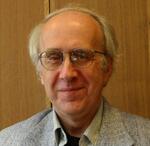James Alleman


James Alleman is a Senior Fellow and Director of Research at Columbia Institute of Tele-Information (CITI), Columbia Business School, Columbia University. He was awarded the title of Professor Emeritus at the University of Colorado – Boulder upon his retirement from the University in 2008. Dr. Alleman was a Visiting Senior Scholar at IDATE in Montpellier, France in the fall of 2005 and continues his involvement in IDATE’s scholarly activities. During calendar years 2001 and 2002, he was a Visiting Professor in the Economics and Finance Division at Columbia Business School, Columbia University. Dr. Alleman was previously the Director of the International Center for Telecommunications Management at the University of Nebraska at Omaha, Director of Policy Research for GTE, and an economist for the International Telecommunication Union. He has conducted research in the area of telecommunications policy, with emphasis on pricing, costing, and regulation as well as on interconnection, international telephony settlements, communications in the infrastructure and related areas. More recently, he has been researching the application of real options valuation techniques to network industries and the causes, consequences and remedies of the financial infirmities of the communications and information technologies sectors. He provides litigation support in these areas. Dr. Alleman founded Paragon Service International, Inc., a communications call-back firm, and has been granted patents (numbers 5,883,964 & 6,035,027 ) on the call-back process widely used by the industry.
Ben Compaine

Ben Compaine is a Senior Fellow at CITI and the Director of the CITI Fellows Program.
He was executive director of the Program on Information Resources Policy at Harvard University before founding Nova Systems Inc., a software firm in 1986. He sold that in 1994 and accepted an appointment as the Bell Atlantic (now Verizon) Professor of Telecommunications at Temple University. Subsequently he was a visiting professor at Penn State and Fordham University, as well as a turn as Research Consultant for the Program on Internet and Telecoms Convergence at MIT. He currently teaches at Northeastern University.
Ben is the author or editor of 10 books, including Who Owns the Media? His articles have appeared in trade, popular, and scholarly journals, including Telecommunications Policy, Science Digest, Foreign Policy, Reason, Daedalus, The Wall Street Journal and the Journal of Communication. His research and teaching interests include entrepreneurship, Internet and telecommunications policy, mass media economics, and the social and cultural implications of changing information technologies. A graduate of Dickinson College (as a political science major), Ben earned an MBA from Harvard University and Ph.D. from Temple University. His consulting and speaking engagements have taken him to Europe, South America, Asia, and Australia as well as throughout the United States and Canada.
Michelle P. Connolly


Michelle P. Connolly is Professor of the Practice in the Economics Department at Duke University. She was the Economics Director of Duke in New York: Financial Markets and Institutions Program for 2007-2009 and the Director of EcoTeach for several years. She served as one of two Arts & Sciences faculty members of the Duke Alumni Association Board from 2012-2016. Professor Connolly currently serves as the Director of the Honors Program in Economics.
In 2011, Professor Connolly won the Howard D. Johnson Trinity College Teaching Prize and was named among the top five percent of Duke University Undergraduate Instructors in 2009, 2010, 2011 and 2017.
Professor Connolly previously served as Chief Economist of the Federal Communications Commission in 2006-2007 and 2008-2009, and as an Economist for the International Research Function for the Federal Reserve Bank of New York from 1996 to 1997. She graduated Phi Beta Kappa and Summa Cum Laude from Yale University in 1990, and went on to earn her M.A. and M.Phil in economics. Professor Connolly received her Ph.D. in economics from Yale University in 1996.
Professor Connolly’s research and teaching focus specifically on international trade, telecommunications policy, media policy, education, growth, and development. She has received funding for her research from the National Science Foundation, the Duke Arts and Sciences Research Council Grants, the Spencer Grant, and the Teagle Grant.
Professor Connolly has published in numerous journals, including the American Economic Review, the American Economic Journal: Macroeconomics, the Journal of Development Economics, the Journal of Economic History, the Journal of Economic Growth, the Review of Industrial Organization, and Current Issues in Economics and Finance.
In 2011, Professor Connolly testified before Congress and participated in a White House panel on Spectrum Issues. She has been presenting her work at university seminars and international conferences since 1996. Some of her appearances were at the ACLP Advanced Communications 2009 Summit, where she was a panelist and moderator, at the conference on “Wireless Technologies: Enabling Innovation and Economic Growth”, where she served as a keynote panelist, and at the Martin H. Crego Lecture in Economics, an all college Lecture at Vassar College. In 2013 Professor Connolly was awarded a National Science Foundation Secure and Trustworthy Cyberspace Grant, “Dollars for Hertz: Making Trustworthy Spectrum Sharing Technically and Economically Viable.”
William J. Drake

William J. Drake joined CITI as Director of International Studies in January 2022. In addition, he teaches adjunct at Columbia Business School and the Center for Executive Education in Technology Policy, Carnegie Mellon University; and is an International Fellow in the Media Change & Innovation Division of the Department of Communication and Media Research at the University of Zurich, where he also served as a Lecturer from 2010 − 2020. Other previous work experience has included: Senior Associate at the Centre for International Governance at the Graduate Institute for International and Development Studies; President of Computer Professionals for Social Responsibility; Senior Associate and Director of the Project on the Information Revolution and World Politics at the Carnegie Endowment for International Peace; founding Associate Director of the Communication, Culture and Technology Program, Georgetown University; Assistant Professor of Communication at the University of California, San Diego; and adjunct professor at the School of Advanced International Studies and the Georgetown School of Business.
Drake’s activities in the academic and practitioner environments have included: advisor to the World Economic Forum’s System Initiative on Shaping the Future of Digital Economy and Society; core faculty member of the European and South schools on Internet governance; Affiliated Researcher at the Institute for Tele-Information, Columbia University; co-editor of the MIT Press book series, The Information Revolution and Global Politics; three terms as Chair of the NonCommercial Users Constituency, seven terms on the Board of Directors of the European At Large Organization, two terms on the Nominating Committee, and two terms on the Council of the Generic Names Supporting Organization, all in the Internet Corporation for Assigned Names and Numbers (ICANN); member of the Multistakeholder Advisory Group of the UN’s Internet Governance Forum; expert advisor to the high-level Panel on Global Internet Cooperation and Governance Mechanisms; member of the UN’s Working Group on Internet Governance; member of the inaugural Coordination Committee of the NETmundial Initiative; member of the Coordination Committee of the 1Net initiative; member of the Group of High-Level Advisors of UN Global Alliance for ICT and Development; and Vice Chair and founding Steering Committee member of the Global Internet Governance Academic Network.
Drake received his PhD in Political Science from Columbia University.
His publications are available at http://www.williamdrake.org
From October 2022, he is the organizer and moderator of the webinar series, CITI Seminars on Global Digital Governance https://business.columbia.edu/citi/events/citi-seminars-global-digital-governance
Paulo Faustino


Paulo Faustino has European PhD from a Complutense University (Madrid) and Post-Doctoral from Nova University (Lisbon). He is professor at Porto University and co-founder of the Master in Communication and Management of Creative Industries; he is also guest professor at the School of Communication and Media Sciences (Lisbon), and School of Education and Social Sciences. He teaches: Cultural Marketing, Tourism Marketing, Media and Creative Industries Marketing, Management and Business Models in Creative Industries). Paulo Faustino teaches in Bachelor’s, Master’s and Doctoral programs in international universities (Portugal, China, Switzerland, Russian and Brazil. Paulo Faustino is co-diretor, with Terry Flew, the JOURNAL OF CREATIVE INDUSTRIES AND CULTURAL STUDIES – JOCIS. He is Non Executive President of Formalpress/Media XXI – Publishing & Consulting Company – www.mediaxxi.com. Paulo Faustino is Chairman of the International Media Management Academic Association (IMMAA: www.immaa.org). He was board member and co-founder of the European Association of Media Management Education (EMMA). He worked circa 20 years in relevant positions in Media Industry and was adjunct for the State Secretary and Presidency Minister of the XV and XVI Constitutional Governments. Paulo Faustino was General Secretary of the Portuguese Media Confederation.
Darcy Gerbarg

Darcy Gerbarg is currently the Director of Operations for CineGrid, Inc., an international technology nonprofit; whose members do experiments with very large media files over the Lambda Rail. She is a Senior Fellow at the Columbia Institute for Tele Information (CITI), Columbia University Business School since 1997. In the past, she was the Executive Director of the Guglielmo Marconi International Fellowship Foundation, Inc. (The Marconi Society, Inc.) at Columbia University. Prior to that she held a research position at Courant Institute for Mathematical Sciences, New York University and as an adjunct professor has taught at several universities. Ms Gerbarg is a pioneer computer artist. Her work has been exhibited in galleries and museums internationally. She was Chairman of the first Computer Art Shows for the Special Interest Group in Graphics (SIGGRAPH) of the Association for Computing Machinery (ACM). Ms. Gerbarg is currently the series editor for The Economics of Information, Communication and Entertainment: The Impacts of Digital Technology in the 21st Century, Springer.
Howard Homonoff


Howard Homonoff heads Homonoff Media group LLC, and is an experienced media executive, lawyer, and academic with a particular focus on strategic content development and distribution. Howard is also the Prodecer and Host of “Media Reporter,” a weekly cable television program which airs in New York. He is a recognized expert at evaluation and execution of digital media growth strategies, balancing comples regulatory requirements with expansion of new business opportunities, and intellectual property protection. He has served as an expert witness on the cable, broadband and digital media industries in proceedings before the FCC, the Copyright Royalty Board and federal and state courts.
Howard previously served as Director at PwC in the Entertainment, Media & Communications practice. The focus of his practice has included strategic content acquisition and distribution; and legal and regulaotry operations, contract management and compliance.
Prior to running his own consulting firm and joining PwC, Howard served as VP and GM of CNBC Strategic Ventures, General Cousel of NBC Cable Networks, and as Director of Corporate and Legal Affairs for Continental Cablevision. Howard also served as Counsel for the U.S. House of Representatives Telecommunications and Finance Subcommittee, and as Legislative Assistant for U.S. Rep. Edward J. Markey, D-Mass. He also worked as an Associate in the Washington DC law firm of Wilmer, Cutler & Pickering and as law clerk to the Honorable Stanley S. Brotman, U.S. District Judge for the District of New Jersey.
Howard served as Associate Professor and Program Director for the Masters Degree Program in Telecision Management at Drexel University. He has lectured on digital media at the Columbia Business School, New School University, and Pace University School of Business. Howard received a B. A. in government with distinction in all subjects from Cornell University and a J.D. from New York University School of Law.
Bruce Lincoln


Bruce Lincoln is the Founder and Chief Design Scientist of the Urban Cyberspace Company. The Urban Cyberspace Company is a design consulting and marketing firm specializing in broadband Internet technologies.
Bruce Lincoln has been involved in cutting edge technology product development and technology commercialization since the late 80’s, when as the first Ford Fellow in Educational Technology, he was one of the early CD ROM content developers for the Apple Macintosh computer. In 1995, after successfully developing the first commercial website for the America’s Cup and producing the first project to put the high speed Internet and the World Wide Web in New York’s public schools, Bruce founded the Urban Cyberspace Company based upon his vision of a ubiquitous Internet. Bruce incorporated Urban Cyberspace in 1998 to commercialize the intellectual properties, business processes, procedural methodologies and the hardware and software design prototypes developed over the course of a five-year cycle of three advanced technology diffusion projects: The Harlem Renaissance 2001 (HR2K1) Project; the New York Online Neighborhood Educational Network (NY ONE-Net); and the New York City Community Technology Center Bank (NYC CTC Bank) representing a research and development investment based upon funding, in-kind services and support and intellectual sweat equity in the amount of five million dollars.
Bruce is a Senior Fellow at the Columbia Institute for Tele-Information at the Graduate School of Business and from May 2008 until June 2011, he was the Entrepreneur-in-Residence at the Center for Technology, Innovation and Community Engagement (CTICE), Fu Foundation School of Engineering and Applied Science.
Michael Nelson


Mike Nelson directs the Carnegie Endowment’s Technology and International Affairs Program, which helps decisionmakers understand and address the impacts of emerging technologies, including digital technologies, biotechnology, and artificial intelligence. Prior to joining Carnegie, he started the global public policy office for Cloudflare, a startup that has improved the performance and security of more than 10 million websites around the world. Nelson has also served as a principal technology policy strategist in Microsoft’s Technology Policy Group and before that was a senior technology and telecommunications analyst with Bloomberg Government. In addition, Nelson has been teaching courses and doing research on the future of the internet, cyber-policy, technology policy, innovation policy, and e-government in the Communication, Culture, and Technology Program at Georgetown University.
Before joining the Georgetown faculty, Nelson was director of internet technology and strategy at IBM, where he managed a team helping define and implement IBM’s next generation internet strategy. He has served as chairman of the Information, Communication, and Computing Section of the American Association for the Advancement of Science, serves as a trustee of the Institute for International Communications, and was selected to be a “Global Leader of Tomorrow” by the World Economic Forum. From 1988 to 1993, he served as a professional staff member for the Senate’s Subcommittee on Science, Technology, and Space and was the lead Senate staffer for the High-Performance Computing Act. In 1993, he joined Vice President Al Gore at the White House and worked with President Bill Clinton’s science adviser on issues relating to the Global Information Infrastructure, including telecommunications policy, information technology, encryption, electronic commerce, and information policy.
A. Michael Noll


A. Michael Noll is Professor Emeritus of Communications at the Annenberg School for Communication at the University of Southern California. Prof. Noll has had a varied career, including basic research at Bell Labs, science policy on the staff of the White House Science Advisor, and marketing at AT&T. He is an early pioneer in computer art, stereoscopic computer animation, and force- feedback (a forerunner of today’s virtual reality). Prof. Noll has published nearly 100 papers on his research and is the author of eleven books related to telecommunication technology and communications. His most recent book, The Evolution of Media, available from Rowman & Littlefield, is a broad examination of the characterization of media. He has also written well over 100 opinion and column pieces for various newspapers and trade publications. His current research is primarily archival and historical, focusing on Bell Labs and industrial research, in general. A Michael Noll’s Webpage
Judith O’Neill
Judith O’Neill is the Chief Operating Officer, a Founding Member and a member of the Board of Managers of CMAS Holdings, LLC which provides location-based alert messages on the SMS platform to all mobile phones in a danger zone. She is trained in legal and strategic advisory and practiced law and provided strategic advice in the United States and internationally for 37 years, before joining CMAS, spending much of her time in the developing world, with a concentration on the Caribbean, Latin America, Middle East and Africa. She has worked as well in, Asia, Eastern Europe and Oceana. Her expertise is in the telecommunications and ICT sector, where she works on all aspects of regulations, joint ventures, media, applications, government policy, citizen protection, corporate transactions and applications of ICT to improve quality of life. She had advised national Presidents, Governments, regulators, private enterprise and multilaterals on communications and media law and policy. Her philanthropic roles include active Board memberships on the Surgeons of Hope (SoH), currently providing pediatric cardiac surgical missions to Nicaragua and instrumental in the building of a state of the art Pediatric Cardiac Surgical Center at the Public children’s hospital in Managua, Nicaragua, which was inaugurated in July 2013. She also chairs the Energy Committee of the New York Region and is on the Steering Committee of the National Energy Committee of a not-for-profit organization that advocates for sustainable energy policy for the U.S. and for other nations, where she convenes seminars and works with the Consuls General and U.N. Ambassadors of multiple nations on energy policy. Dr. O’Neill has worked, advised and lectured in more than 85 countries. She has been listed in successive years as among the Best Lawyers in America, New York Super Lawyers, EuroMoney Leading Telecoms Privatizaton and Regulatory Lawyer, as well as Honored as a Woman of Valor by the AJC and inducted into the Direct Women’s Board Institute in 2008, which seeks out 20 leading female lawyers each year in the US for potential fortune 500 Board membership. She holds a Bachelor of Arts Degree in Romance Languages from the American University in Washington DC and the University of Madrid, Spain, a Master of Arts Degree from the School of International Service, American University and a Juris Doctor summa cum laude from University of Baltimore School of Law, Univ. of Maryland system.
Leon Perlman


Dr. Leon Perlman is the founder and head of the Digital Financial Services Observatory, at the Columbia Institute for Tele-Information at Columbia Business School. The DFSO explores the policy, regulatory, technical, disruptive and commercial aspects of DFS, emerging payments, big data, and blockchain technologies. It is funded by the Bill and Melinda Gates Foundation.
A former scientist and successful entrepreneur, he has been in the telecommunications, payments and micro-payments industry for over 25 years.
He currently heads the blockchain and infrastructure security workgroups for the new Financial Inclusion Global Initiative (FIGI). His expertise as a consultant and researcher extends to payments, anti-money laundering national payment systems, de-risking, risk frameworks, telecommunications, cyber-security, and blockchain technologies. He concentrates on commercial, technical, policy, legal and regulatory aspects of these ecosystems and issues.
He has consulted widely on financial inclusion and regulatory solutions to central banks, DFS service providers, payment service providers, MNOs, regulators, the World Bank, CGAP, GIZ, ITU, USAID, UNCDF,EIB, IFC and many philanthropic organizations. His experience spans over 30 developed and developing markets.
He also served as the chair of the ITU DFS Focus Group’s Technology, Innovation and Competition working group, and was founder and served for 10 years as chairman of WASPA, the South African mobile industry association.
Dr. Perlman holds the degrees BSc, BSc (Hons), MSc, BProc, LLB (JD), and LLD (PhD), and is the recipient of numerous grants and fellowships.
His doctorate in DFS commercialization and regulation was the world’s first legal and regulatory doctorate on the subject.
Lorenzo Pupillo

Lorenzo Pupillo is an Associate Senior Research Fellow and Head of the Cybersecurity @CEPS Initiative in Brussels.
Before joining CEPS, he served as an Executive Director in the Public & Regulatory Affairs Unit of Telecom Italia developing the company’ global public policies for Internet, Cyber-Security, Next Generation Networks. He also managed Telecom Italia’s relations with the OECD, the ITU and other international associations and organizations. Previously, Dr. Pupillo held a variety of senior positions in the Strategy, Business Development and Learning Services divisions of Telecom Italia. He is an economist by training and has worked in many areas of telecommunications demand and regulatory analysis, publishing four books on Internet Policy and many papers in applied econometrics and industrial organization. He has served as an advisor to the Global Information and Communication Technologies Department of the World Bank. Before joining Telecom Italia, he was member of the technical staff at AT&T Bell Laboratories in Murray Hill – New Jersey – and he worked as senior economist for governmental institutions. Dr. Pupillo is also an affiliated researcher at Columbia Institute for Tele-Information at Columbia Business School and serves on numerous scientific and advisory boards around the globe. He obtained a Ph.D. and an M.A. from University of Pennsylvania, an MBA from Istituto Adriano Olivetti in Ancona Italy and an MS in Mathematics from University of Rome.
David Salant

Dr. Salant specializes in auctions, game theory and industrial economics. His primary areas of concentration are auction strategy; auction design; regulation of network industries, such as telecommunications and energy. Dr. Salant has been an auction consultant for more than twenty years, serving as the primary auction strategist for auctioneers and bidders in dozens of telecom and spectrum auctions around the world.
David J. Salant is IDEI Associated Researcher and Member of the Toulouse School of Economics (TSE), and an Adjunct Senior Research Scholar at CITI. An auction consultant for more than twenty years, he was the primary auction strategist for auctioneers and bidders in dozens of telecom and spectrum auctions around the world.
Dr. Salant is the author of the forthcoming A Primer on Auction Design, Management and Strategy, MIT Press. Dr. Salant earned a bachelor¹s degree from Washington University in economics and mathematics, graduating magna cum laude. He also earned a Ph.D. in economics from the University of Rochester.